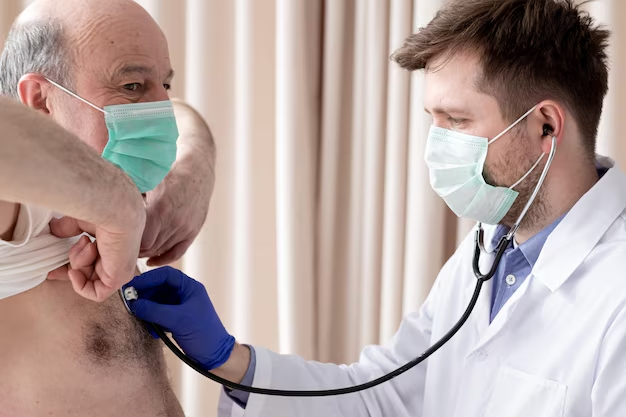Understanding Cancer Stages: Navigating Cancer in the Lymph Nodes
Finding out that cancer has spread to the lymph nodes can be a daunting moment in any cancer journey. It raises a myriad of questions, not just about the stage of the cancer but about what this means for treatment, prognosis, and life decisions. Let's delve into understanding the implications of cancer's presence in the lymph nodes and explore what it means for cancer staging.
Decoding Cancer Stages
Cancer staging is a way of describing the size of a tumor and how far it has spread from its origin. It's crucial for determining the most effective treatment pathway. Here's a breakdown of the stages:
- Stage 0: This is also called carcinoma in situ, where abnormal cells are present, but they haven't spread.
- Stage I (localized): The cancer is small and contained within the organ where it started.
- Stage II and III (regional spread): This involves larger tumors that may have spread to nearby tissues or lymph nodes.
- Stage IV (distant spread): The cancer has metastasized to distant parts of the body, sometimes affecting lymph nodes far away from the original tumor.
Lymph Nodes: The Body’s Defense Network
Lymph nodes are small, bean-shaped structures that are part of your immune system. They help your body fight infections by filtering lymph fluid and trapping viruses and bacteria. When cancer spreads to these nodes, it often signals that the disease has progressed, given the lymphatic system’s role as a doorway throughout the body.
What Does It Mean if Cancer is in the Lymph Nodes?
When you hear that cancer has spread to the lymph nodes, it often indicates a Stage II or III cancer. However, it could also be consistent with Stage IV if the involvement of lymph nodes is part of a larger spread to distant organs.
The Role of Lymph Node Biopsy
A lymph node biopsy can provide crucial information on cancer staging. During this procedure, a doctor may remove part or all of a lymph node to examine it for cancer cells, helping to characterize the extent of cancer spread.
Implications of Lymph Node Involvement
Involvement of lymph nodes can affect treatment decisions in significant ways. It opens doors to considerations like:
Surgical Interventions: First-line treatment often involves removing not just the primary tumor but also affected lymph nodes to prevent further spreading.
Chemotherapy and Radiation: To address local and systemic spread, chemotherapy and/or radiation may be used to eradicate any residual cancer cells in the lymph nodes or bloodstream.
Targeted Therapies: Depending on the cancer type and lymph node involvement, specific medications like targeted therapies may be prescribed to attack cancer at the molecular level.
How Lymph Node Involvement Affects Prognosis
The presence of cancer in lymph nodes may influence the prognosis, which can vary widely depending on:
Number of Nodes Affected: Generally, fewer affected nodes tend to indicate a better prognosis.
Cancer Type and Grade: Different cancers interact with lymph nodes in varied ways; thus, the type and aggressiveness of the cancer make a meaningful difference.
Patient’s Overall Health: A patient's age, response to treatment, and overall health play a critical role in outcomes.
Navigating Uncertainty with Confidence
Coping with a cancer diagnosis that has spread to the lymph nodes demands fortitude and access to resources. Here’s how you can empower yourself:
Seek Support Networks
Joining support groups can provide community and practical advice. Sharing experiences with those in similar situations offers emotional relief and camaraderie.
Leverage Multidisciplinary Care
Engage with a team of oncologists, surgeons, and specialized nurses who can tailor a treatment strategy to your needs. They can also keep you informed on the latest advances in cancer treatments.
Stay Informed with Advanced Diagnostics
Make informed decisions by asking your healthcare provider about advanced diagnostic tests, which can offer insights into personalized treatment options.
Practical Takeaways
Understanding cancer stages with lymph node involvement demands a holistic perspective. Always:
Communicate Openly with Your Healthcare Team: Keep asking questions; clarity every step of the way is vital.
Prioritize Self-Care: Mind your mental, emotional, and physical health during treatment journeys.
Stay Up to Date with Research: As treatments evolve, updates could open new treatment pathways fitting your condition.
Key Insights
Cancer’s progression to the lymph nodes changes the landscape of treatment and impacts prognosis. While this can initially sound overwhelming, understanding your staging and treatment options can empower you to make informed decisions.
🌟 Summary of Key Points
- Lymph nodes are pivotal in cancer staging, often signifying Stage II, III, or IV.
- Staging guides treatment choices, such as surgery, chemotherapy, and radiation.
- Cancer type and nodal involvement impact prognosis—fewer affected nodes generally indicate better outcomes.
- Stay empowered by being informed, engaging with multidisciplinary teams, and utilizing support networks for emotional and practical assistance.
Remember, your journey is unique, and staying informed with evolving research and open communication with healthcare providers can make all the difference in navigating cancer with resilience. 🌼

Related Articles
- Are Breast Cancer Lumps Painful
- Are Chills a Sign Of Cancer
- Are Colon Spasms a Sign Of Cancer
- Are Lytic Lesions Always Cancer
- Are Polyps Cancer
- Can a Blood Test Detect Cancer
- Can a Ct Scan Detect Cancer
- Can a Dexa Scan Show Cancer
- Can a Gastric Emptying Scan Show Cancer
- Can a Lung Biopsy Cause Cancer To Spread
